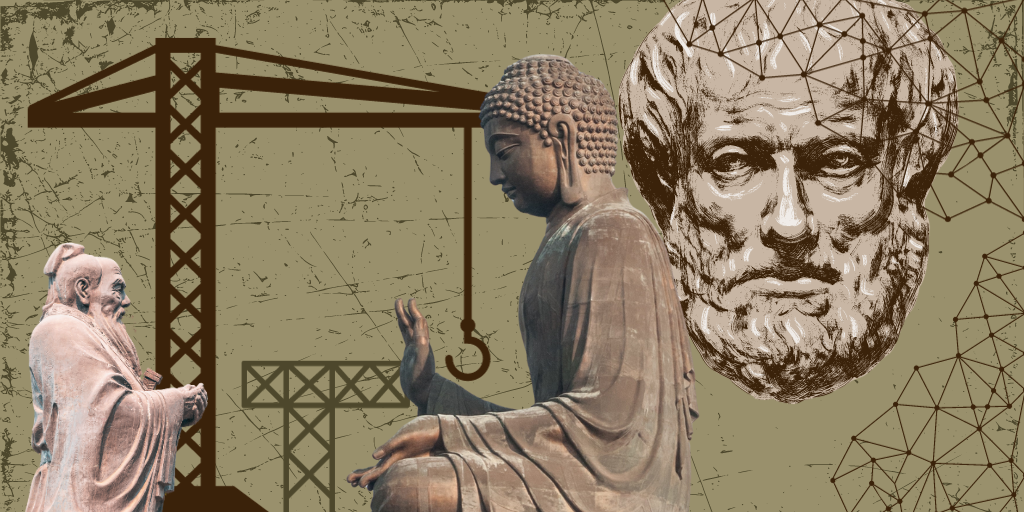
By Paul Knipe
There is no doubt that the aid system is changing. We are moving, rightly so, to more locally-led approaches and solutions, determined and delivered by those closer to where the work is taking place. At the same time there are shifting opinions of consultancy within the system, its role, ethics and practice.
Yet consultancy has an important role to play in supporting the civil society ecosystem. We have argued that consultancy, through a more ethical and values-driven lens, can both support sustainable, impactful civil society ecosystems, and contribute to decolonizing and shifting power within the aid system.
As part of our new five-year strategic framework, Locally rooted, globally connected, there are three dimensions to ethical and values-driven consultancy that we are exploring:
1. Who the consultant is, the knowledge, experience and practice they bring
We advocate for consulting with soul: consultants with a balance of technical skills, consulting competency, and qualities of integrity and humility. If consultants focus on a client’s change, not the contract, ensure genuine ownership, build trust and get to the heart of the matter, while bringing the best of themselves, there is a strong likelihood of catalysing change. This is fundamentally about consultants who are best placed to deliver the work, who may be embedded in the context, with deep understanding of the culture, reality and knowledge that is needed in different civil society ecosystems. Our intention is to increase the leadership and participation of consultants in the global South in the work we do.
2. The approach to consultancy
We are exploring how we take a measured and appropriate approach that responds to different, evolving civil society support contexts. For example, all ecosystems may benefit from global learning, connection and advocacy initiatives. Emerging and weaker ecosystems from programmes to identify and support consultants in specific contexts, and international input as appropriate. Across ecosystems we can bring together teams of consultants with a range of perspectives and experiences. We can act as a knowledge broker, advisor and mentor, accompanying global actors to develop civil society strengthening policy and practice. For any consultancy we will interrogate the need and added value of involving those who are not embedded in a context that is a focus of the work.
We are catalysing and weaving a network of likeminded consultants, rooted locally and connected globally, coalescing around a commitment to ethical and values driven consultancy. There is increasing understanding of the power of networks, with distributed leadership models, to catalyse social change. Members form a community, sharing work opportunities, perspectives and learning, contributing to professional development and support, and influencing sectoral change. For example, the latter may take the form of creative minds, coming together, exploring how we can reimagine MEL or how we can shift power through feminist organisational development.
3. The intention of consultancy and its impact
Our aim is to contribute to effective, resilient, and impactful CSOs and to contribute to shifting power in the aid system. This means considering how work and processes are antiracist, feminist, decolonial, and therefore contribute to locally determined and led development. We need to consider the language and terminology we use, whose knowledge is valued and how it is amplified. We will ask ourselves how the work challenges dominant notions of quality, authenticity, legitimacy, and accountability.
This dimension is in many ways the most difficult change as we balance our intention for more progressive consultancy with current market supply and demand. We will think carefully about the kinds of work we take on and the commissioners and clients we work with. We will ask ourselves: is our work appropriate and ethical? How does it add value? How can our learning influence change in consultancy commissioning and practice?
Building the practice
A colleague gave valuable feedback recently. It’s important to have a concept for ethical and values driven consultancy, but it needs to be specific and concrete. How can this concept be practical for people? For consultants around the world, for commissioners, for civil society organisations?
Over the coming months we will develop the detail of our ethical and values-driven consultancy framework. We will continue to engage with partners, colleagues, practitioners, as we test, learn, and develop practical guidance.
We recognize there are many questions prompted by ethical and values-driven consultancy . We value feedback and dialogue, so please do get in touch.